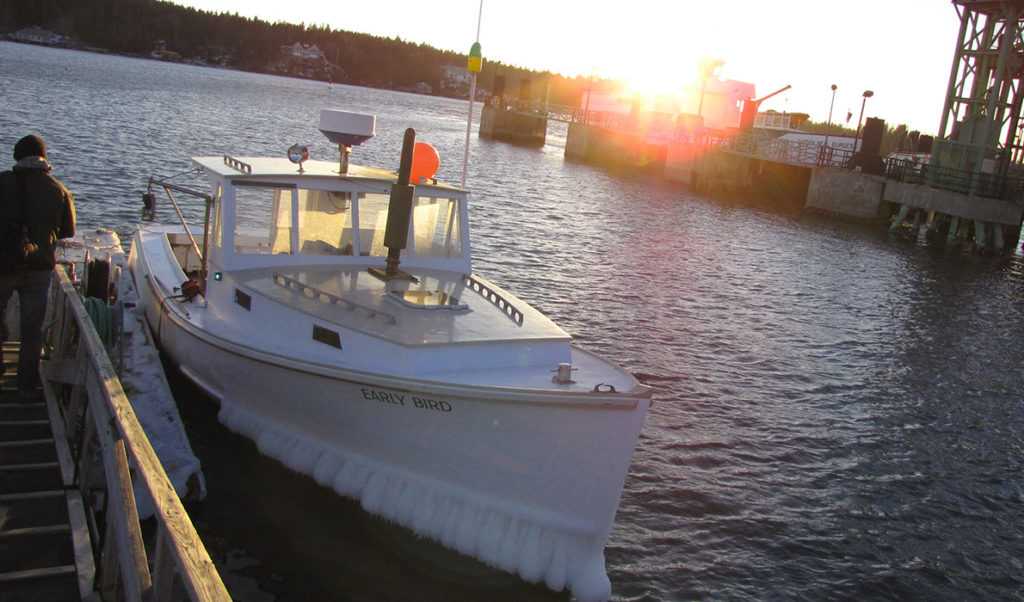One weekend in January, my husband went away for an Island Institute conference. I planned a fun girls night dinner with a friend and my daughter, with calzones and homemade cookies and ice cream on the agenda.
Midway through calzone making, my daughter, who had been running around moments before, looked at me and reenacted a scene from The Exorcist. You know which one. We got her and myself and the floor cleaned, and she perked up. As we sat on the couch, she did it again. My friend, who had already gone above and beyond, helped clean up again and then, sensibly, fled. The calzone went uneaten, the ice cream custard unfrozen, the cookies only a dream.
That incident set the tone for the weekend. Saturday I woke up with chills and body aches, and though I tried to convince my daughter to hang out in bed with me she responded by falling out, giving herself a purple goose egg and a big scare. The dog threw up on the floor. The wind gusted on Sunday and stopped my husband’s much-anticipated return. As dinner wound down, the power went out.
We have a well, with an electric pump. Our water is sweet and crisp and we are spared an annual bill. But without a generator, we lose water when we lose power. It’s part of the deal. I grew up with a well, and I’m delighted to have one again, but when the wind blows (and I am in too much denial to fill the tub in preparation) I wish ever so slightly for town water.
It’s the same thing with the ferry. We have regular transportation to and from the mainland. We choose to live in a place with that degree of geographic isolation. And certainly people are stranded in other circumstances, too—I vividly remember sleeping on the floor of O’Hare Airport as a child en route to California—but in most other circumstances you could, with enough ambition, and barring a blizzard, drive home.
I wished desperately for my husband to come home that Sunday, particularly when the lights started to flicker, but it’s part of the deal. Getting on the ferry, in either direction, means accepting that you might not get back in the other direction as planned. Mechanical failure, weather and emergency medical runs can all stymie travel plans.
I try, in this column, to enumerate the reasons we stay on the island, all of the beauty and opportunity and community we’ve found here. I think it’s equally important to name the challenges, and assess whether they’re an acceptable part of the deal, or if the burden is too great.
Living in Boston, we dealt with peeping Toms, college students urinating on windows, air tangibly heavy with pollutants, a high cost of living and few career opportunities. In the end, the scale tipped in favor of leaving, despite the joys of playing in bands, eating any cuisine imaginable, and public transportation.
My daughter and I got through the weekend intact. We’re both now healthy, we found time for two playdates, we did a lot of drawing, watched a Penobscot Island Air plane land and take off, and finally finished making the ice cream. Even the power outage, as anxious as it made me, gave my daughter and I a quiet evening reading by hurricane lamp and encouraged me to sit down and start editing a long-neglected manuscript. Travel delays, lost power, and illness are all part of the island parenting deal. It’s worth it.
Courtney Naliboff lives, teaches and writes on North Haven.





